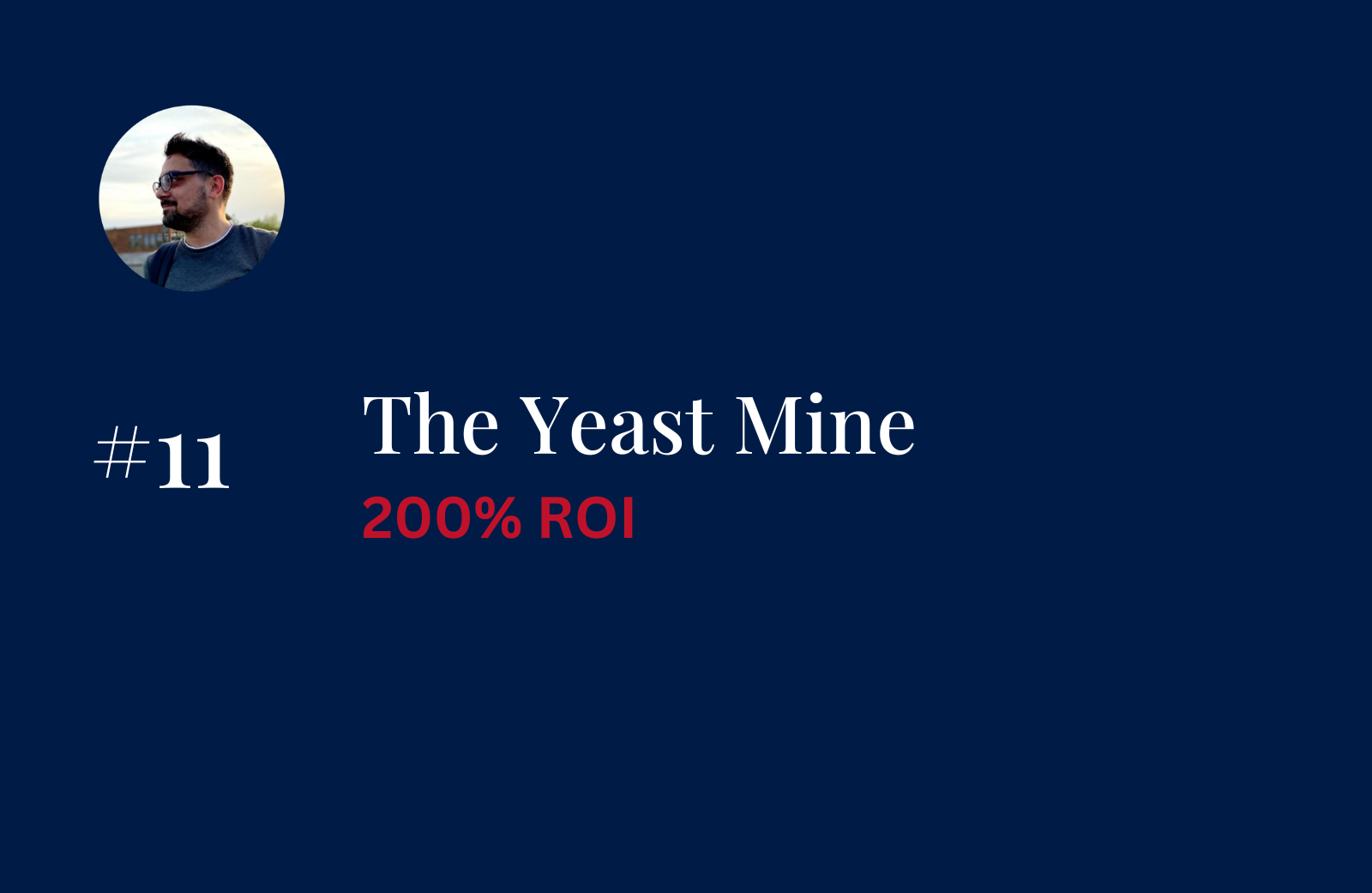
26 Jun The Yeast Mine
Jun 26, 2024
Today, I’m going to discuss a very straightforward topic — earning money. I won’t involve any high-tech terms or complicated marketing strategies.
Do you recall the shortest definition of business I shared in one of my previous posts? Here it is:
You create a product or a service that people are willing to pay for.
A few weeks ago, I chanced upon a man in my city. We had a lengthy conversation during which he mentioned an interesting story about achieving a 200% ROI within six weeks.
He agreed to share his story, complete with photos, to lend authenticity. For the sake of keeping him anonymous, let’s call him Peter.
The TV Channel
In 2020, when the pandemic started, Peter was at home watching the BBC. Having lived in the United Kingdom for over 20 years, watching UK channels was part of his daily life, especially when everyone was staying home.
On one of the BBC TV shows, the host discussed activities people could engage in while stuck at home, and ‘baking’ was one of them. Everything was under lockdown. You couldn’t go to the shops even if you wanted to. Everything had shifted to home delivery. The stores were empty, as everyone was purchasing items like toilet paper, oil, and flour.
Then, the host mentioned something interesting. Due to the current situation, there was a shortage of yeast in food stores, an essential ingredient that British households used for preparing homemade bread.
I can tell you this, Peter is a smart person. He immediately remembered seeing plenty of yeast packets in his local food store the day before.
Market Validation
A simple thought crossed Peter’s mind:
People need yeast and are willing to pay for it, but there's a shortage.
Given his history, Peter was well aware that British people are accustomed to buying items online.
Without hesitation, he opened his laptop and checked whether yeast was being sold on ebay.co.uk. Voila! It indeed was.
A packet of four small Dr.Oetker yeast packets in the local food store cost about £0.55, whereas they were listed on eBay for 7 to 9 British Pounds.
Minimum Viable Product
The next step was straightforward. Peter already had an eBay account, so he created a listing, attached a photo of the yeast package with a detailed description, and published it.
Now, all he had to do was wait!
On The Next Day
The next morning, Peter checked his email and found several notifications of people purchasing his item.
I must mention that Peter already had experience with online trading, so he knew the drill — he didn’t need to reinvent the wheel.
He hurried to the local food store, bought the yeast, and shipped it via local postal services.
Due to the pandemic, the delivery took 3-4 weeks, but the packages eventually arrived.
In total, he had 14 orders on that particular day and bought 14 packages of yeast for a total of:
14 x £0.55 = £7.7
He sold them for:
14 x £7 = £98
The Rush
The following day, he received even more emails — new orders were rolling in. He decided to scale up! He happened to pass by a door on the street that looked like this:
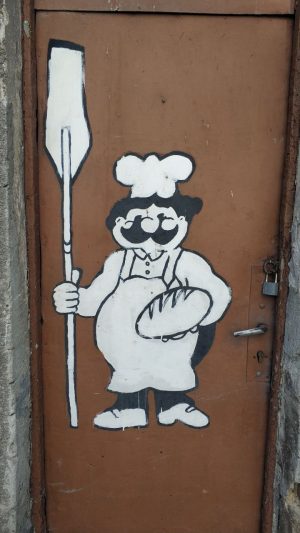
He took a photo and used it as his profile image on his eBay account. People would immediately associate it with bread making and yeast.
Additionally, he decided to offer discounts to stimulate purchases.
Next, he visited several local stores and bought as much yeast as possible. Even in his city, food shortages were prevalent, but yeast could still be found.
He recalled how he visited a big food store chain and he found a large stockpile of yeast. This was unusual given his previous difficulties.
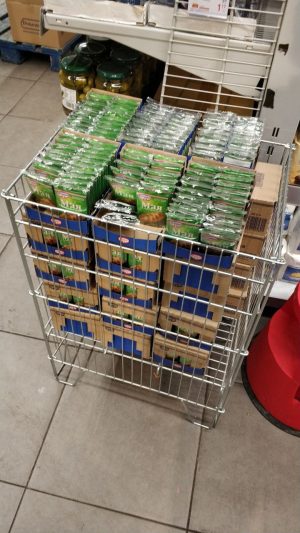
He asked the shop assistant:
“Why do you have so many packages of yeast?”
The assistant answered:
“Oh, this one, it’s a mistaken delivery.”
Upon hearing these words, Peter thought, “It’s a mistake for one person, but it’s a gold mine for another”… or perhaps in this context, we should say “Yeast Mine.”
He bought it all.
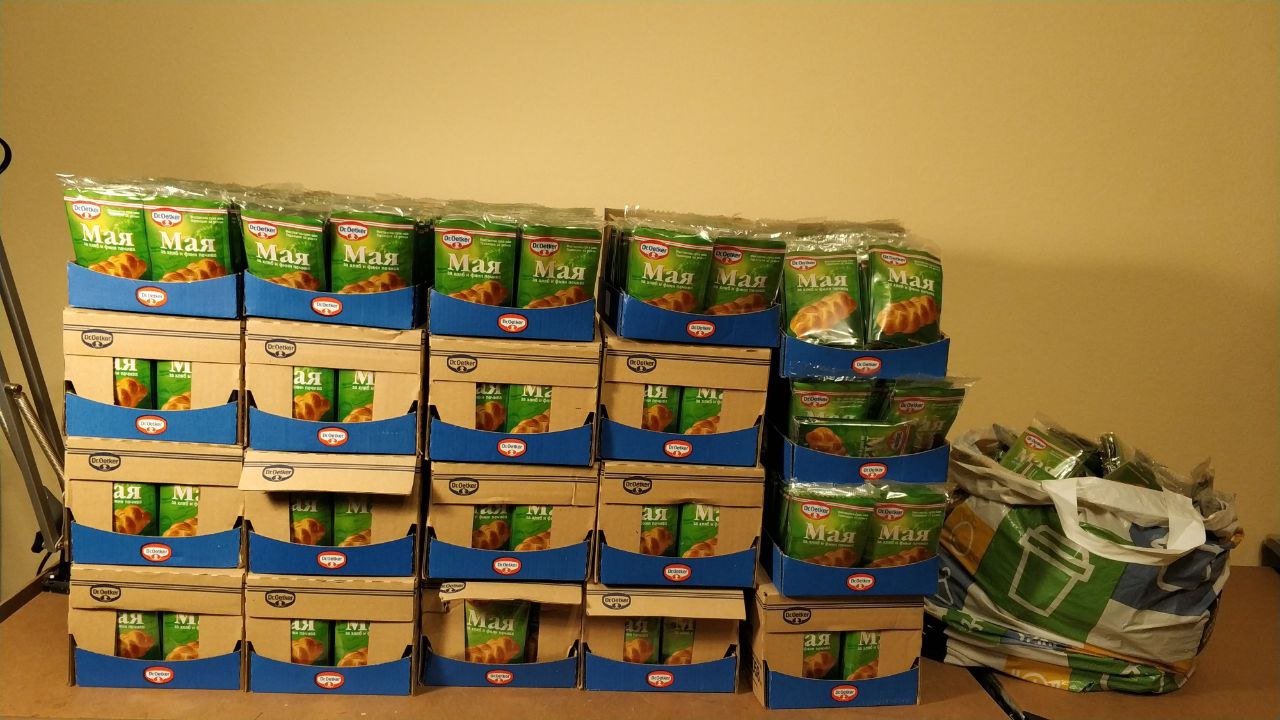
Peter shared that this venture continued for about six weeks.
“There was a big rush between the laptop and the local post office. Initially, the service staff at the post office was wondering what I was doing… Eventually, we became good friends, given how often we were seeing each other,” he shared.
The Outcome
After six weeks, the orders gradually slowed down. Overall, Peter invested approximately £910 and bought approximately 1,650 packages of yeast. They were all sold for around £7 to £9 each, resulting in a total gross profit of £8,500. Additionally, he had to pay approximately £500 in eBay fees and £1,300 for postal delivery expenses.
The total cost of investment was:
Cost of Investment =
= Initial investment + eBay fees + Delivery expenses =
= £910 + £500 + £1,300 =
= £2,710
The total return on investment was:
ROI =
= [ ( Value of Investment – Cost of Investment ) / Cost of Investment ] x 100% =
= [ ( 8500 – 2710) / 2710 ] x 100% =
= [ 5790 / 2710 ] x 100% =
= 213%
“According to conventional wisdom, an annual ROI of approximately 7% or greater is considered a good ROI for an investment in stocks.” – Forbes
Here is a photo of Peter — with a covered face — exiting the Billa food store chain, holding packages of yeast.
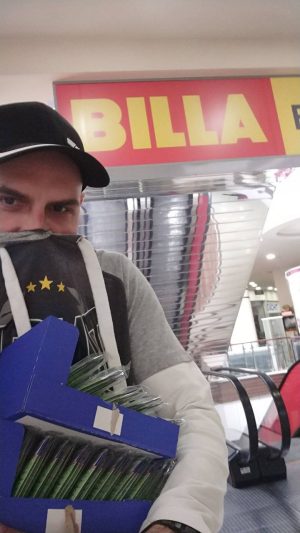
Conclusion
After reading this story, you might consider what he did as a jackpot, or you might view it as immoral. It’s up to you to make a judgement — I leave that to you. But the lesson here is simple — and I’ve mentioned it in my previous posts.
Business ideas don’t magically appear by just sitting around and pondering what people may want.
Business ideas emerge from living and experiencing life — watching TV and connecting the dots, as was the case with Peter.
If you want to build a business, you have to go out, live your life, and observe what people need. And of course, to make the first move.
At the end of the day, complex business presentations and plans boil down to one thing: Do I solve a problem? I will repeat it again because it’s vitally important:
You create a product or a service that people are willing to pay for.
Key Takeaways
- Live and experience life.
- Observe what you and others need.
- Be smart and take action.
